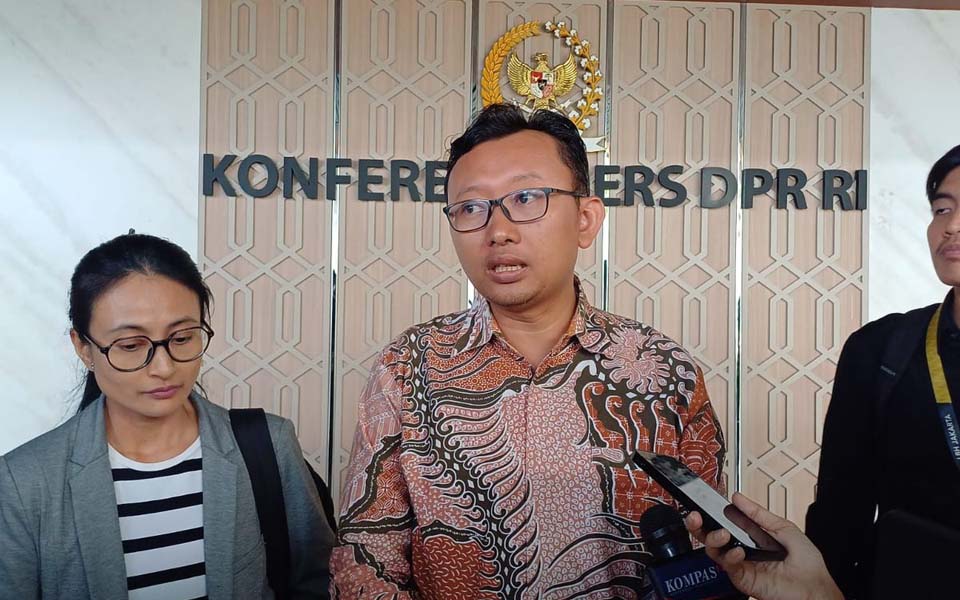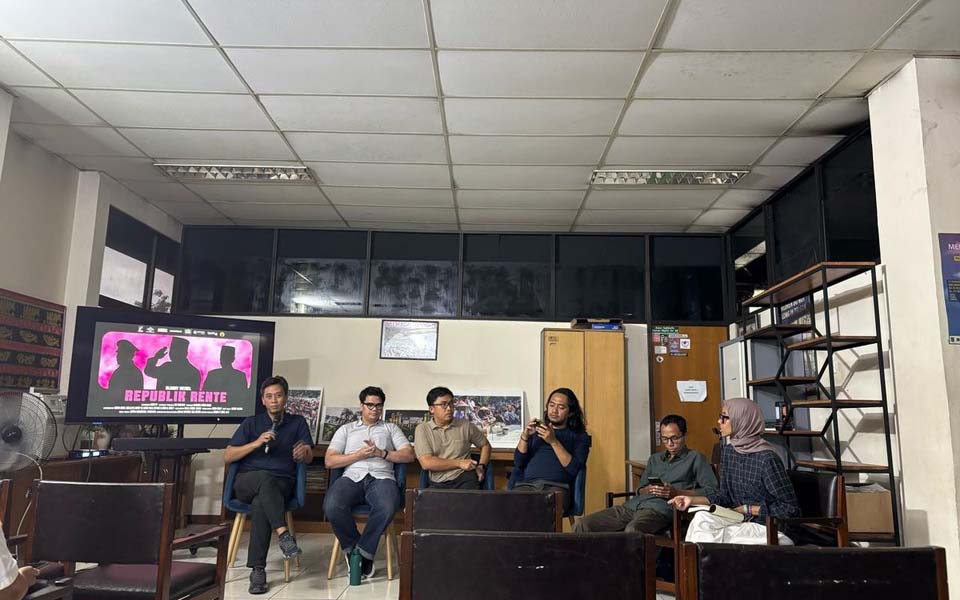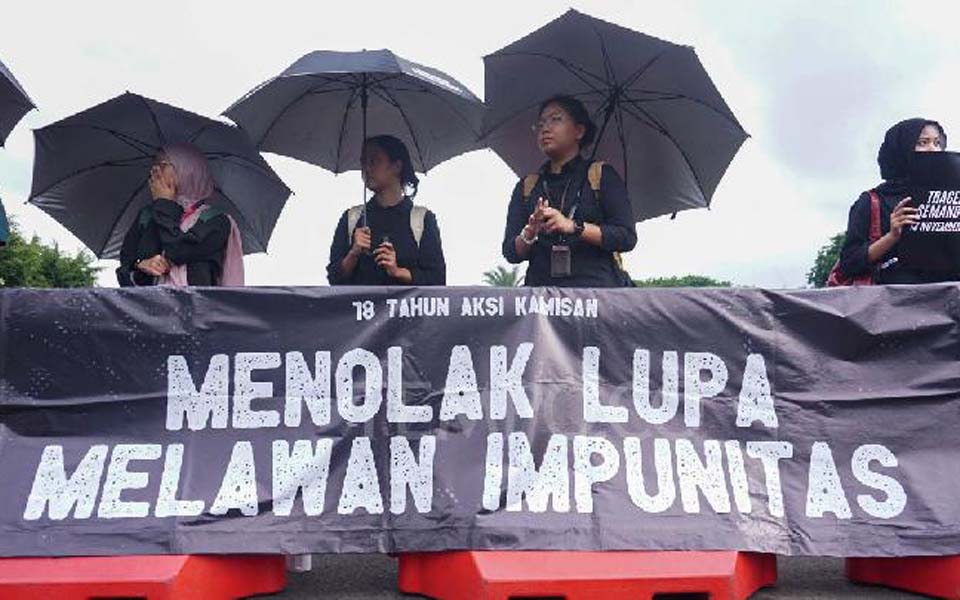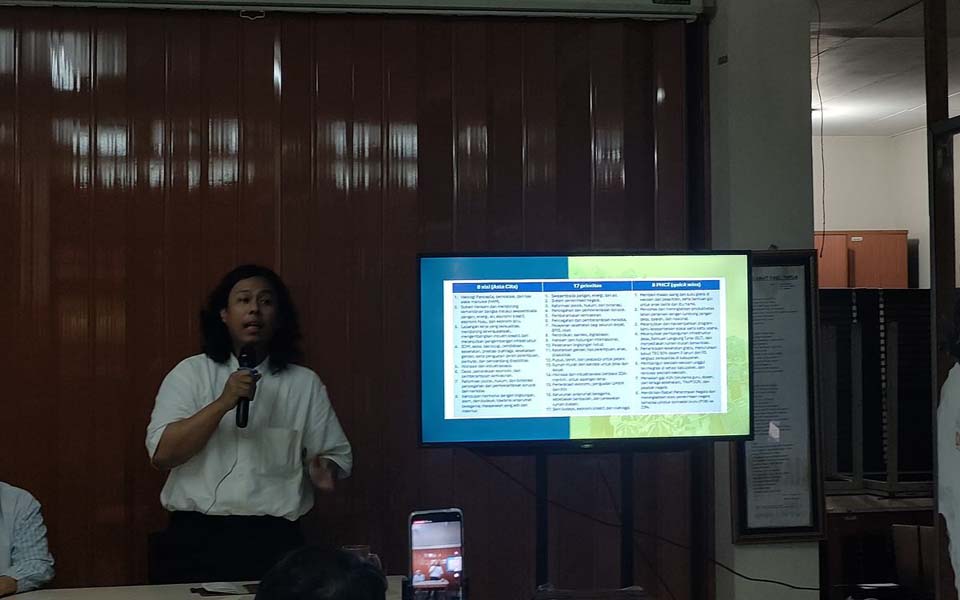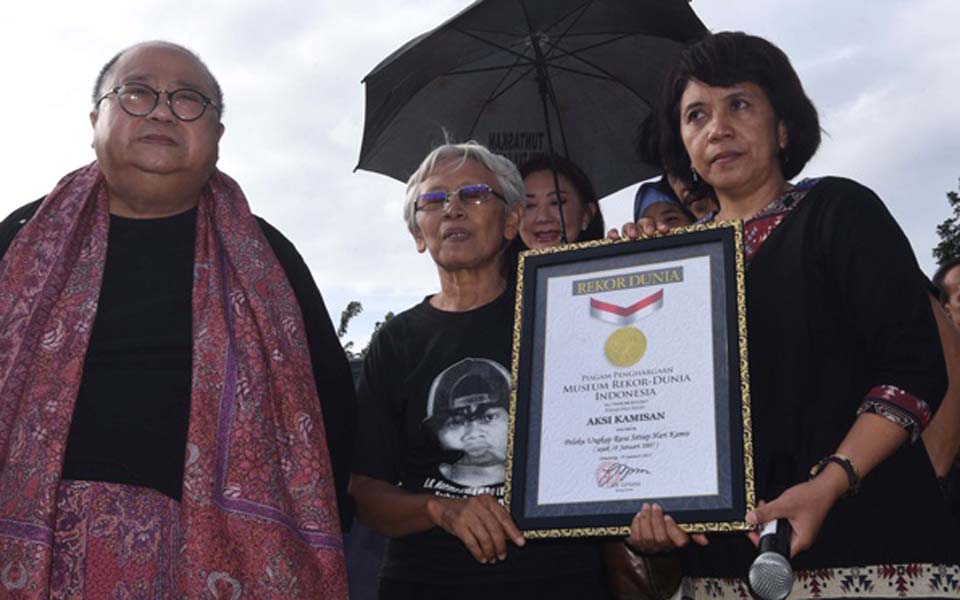Jakarta – A existence of a human rights court and ad hoc human rights judges needs to be reexamined. Moreover ad hoc human rights judges are seen as excessive and consideration needs to be given to whether such ad hoc judges are in line with international justice.
This was one of the suggestions made following a Supreme Court comparative study to Sweden headed by Supreme Court Secretary Sareh Wiyono. The team spent two days between December 18-19 studying human rights courts and produced a 13-page report, which has been published on the Supreme Court’s website.
Speaking in Jakarta on Sunday January 3 however, Commission for Missing Persons and Victims of Violence (Kontras) coordinator Usman Hamid said that the team’s conclusions and suggestions are far too premature. He also suspects that there are other interests behind it.
“There are interests seeking to whitewash past human rights violations. They want to normalise the judicial system, to return the authority of judges solely to the Supreme Court without providing an opening for ad hoc judges. This is one of the forms of conservatism on the part of Supreme Court justices against reform”, said Hamid.
Hamid explained that the choice of a comparative study to Sweden would not have been wrong if had been done in a comprehensive manner. The Supreme Court’s team should not just have studied the Swedish justice system, but also the European justice system as a whole. Admittedly there is no special human rights court in Sweden and human rights violations are handled by ordinary courts, but the decisions of these courts can be annulled by the Regional Legal Court in Europe.
According to the comparative study report carried on the Supreme Court’s official website, the choice of visiting Sweden was made because the upholding of human rights there is relatively better than Indonesia. Additionally the Indonesian government and Sweden have an exchange of notes (EoN) on human rights that has resulted in various forms of cooperation in organisational capacity building, human rights education and so forth.
The team visited the Swedish Justice Department and met with one of its high court justices and the Swedish Ombudsman offices. Sweden does not recognise human rights courts and human rights cases are presented in the form of class actions. The Supreme Court report also noted that phone tapping is not used in Sweden because it violates human rights.
Hamid criticised the choice of countries visited saying the Supreme Court should have conducted a comparative study in countries that have similar problems to Indonesia such as Chile, Peru, Uruguay and Guatemala. (ana)
Notes:
Late last year the Supreme Court was widely condemned by anti-corruption activists for its decision to send more than 70 judges and their staff on a trip to European and Asian countries costing the state some US$600,000. Critics have alleged that despite its complaints of a shortage of funds to finance its operations, including the establishment of corruption courts throughout the country, the Supreme Court engaged in useless and non-transparent projects that it hid from public scrutiny.
[Translated by James Balowski.]






